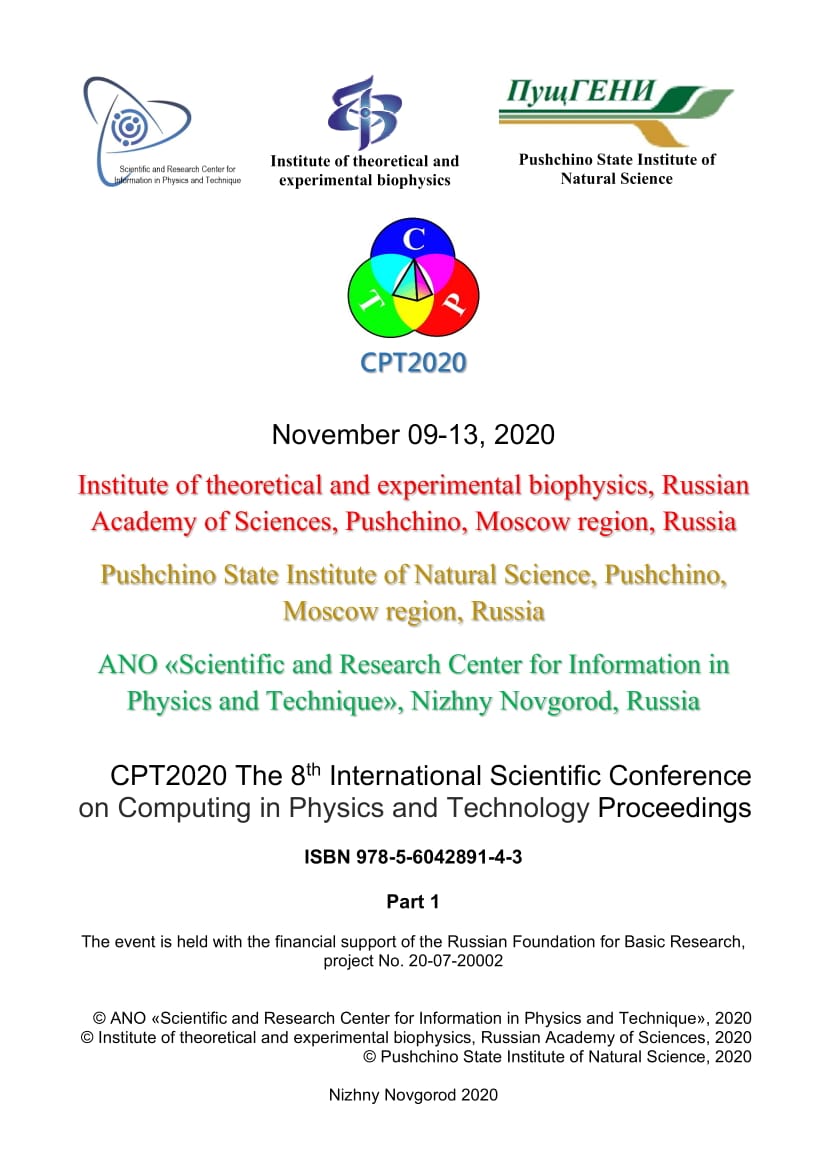Tomsk, Russian Federation
Tomsk, Russian Federation
BISAC SCI010000 Biotechnology
Modern biomedical technologies pose bioethical dilemmas for humanity. On the one hand, medical advances can make life much easier for people, but, on the other hand, the problem of interference in human nature actualizes the most fundamental questions regarding his ontology, the boundaries of permissible transformations, the responsibility of a scientist and a specialist who applies the latest technologies, for remote and unpredictable consequences, due to the integrity and interconnectedness of various aspects of human nature. In the scientific literature, there is a lot of information about the attitude of various denominations to genetic manipulation. This paper presents the experience of generalizing and systematizing the attitude of the main Christian confessions to the problem of editing the human embryo genome. The assessment of modern biomedical technologies from the standpoint of the Christian worldview differs, on the one hand, in the moral depth due to spiritual experience in relation to the higher divine principle, and, on the other hand, if we bear in mind the specificity of the Orthodox, Catholic and Protestant views on the problem of genetic manipulations, it is diversity interpretations in connection with historically arisen and existing to this day confessional and doctrinal differences.
biomedicine, bioethics, human, embryo, genetic manipulation, Roman Catholic Church, Russian Orthodox Church, Protestantism
1. To participants in the Primum Symposium Internationale Geneticae Medicae (September 7, 1953). http://w2.vatican.va/content/pius-xii/en/speeches/1953.index.html
2. Address of John Paul II. To members of the Pontifical Academy of Sciences. Saturday, 23 October 1982. http://w2.vatican.va/content/john-paul-ii/en/speeches/1982/october/documents/hf_jp-ii_spe_19821023_pont-accademia-scienze.html
3. Charter of the rights of the family, October 22, 1983, article 4C. http://www.vatican.va/roman_curia/ pontifical_councils/family/documents/rc_pc_family_doc_19831022_family-rights_en.html
4. Address of His Holiness Pope John Paul II at The Conclusion of the thirty-fifth General Assembly of the World Medical Association, Saturday, 29 October 1983. http://w2.vatican.va/content/john-paul-ii/en/speeches/1983/october/documents/hf_jp-ii_spe_19831029_ass-medica-mondiale.html
5. Congregation for the doctrine of the faith. Instruction on respect for human life in its origin and on the dignity of procreation. Replies to certain questions of the day. http://www.vatican.va/roman_curia/congregations/cfaith/ documents/rc_con_cfaith_doc_19870222_respect-for-human-life_en.html
6. Ioannes Paulus II Evangelium Vitae. To the Bishops, Priests and Deacons, Men and Women, religious lay, Faithful and all People of Good Will on the Value and Inviolability of Human Life. 25 March 1995. http://w2.vatican.va/content/john-paul-ii/en/encyclicals/documents/hf_jp-ii_enc_25031995_evangelium-vitae.html (dostup 22.11.2017), http://www.unavoce.ru/library/evangelium_vitae.html
7. Concluding Document of IV Plenary Assembly of the Pontifical Academy for Life «The Human Genome: Human Personhood and Future Society», February 23 - 25 1998. http://www.vatican.va/roman_curia/pontifical_academies/ acdlife/documents/rc_pa_acdlife_doc_28091998_final-doc_en.html
8. Congregation for the Doctrine of the Faith. Instruction Dignitas Personae on certain bioethical questions. 8 September 2008. https://web.archive.org/web/20130118060111/http://www.vatican.va/roman_curia/congregations/cfaith/ documents/rc_con_cfaith_doc_20081208_dignitas-personae_en.html
9. Charter for Health Care Workers. Pontifical Council for Pastoral Assistance to Health Care Workers. Translated by The National Catholic Bioethics Center. Philadelphia. 2017.
10. Pope John Paul II. Vitae Mysterium. Apostolic letter "Motu proprio" establishing the Pontifical Academy for Life. http://www.academiavita.org/about_us_motu_proprio.php#panel2
11. Encyclical letter LAUDATO SI’ of the Holy Father Francis on care for our common home. http://www.vatican.va/content/francesco/en/encyclicals/documents/papa-francesco_20150524_enciclica-laudato-si.html
12. Lexicon, Discussion Topics and Ambiguous Terms in the Field of Family, Life and Ethics, Pontifical Council for Family Affairs, ed. Franciscans M., 2009 (in Russian)
13. ENCYCLICAL LETTER HUMANAE VITAE OF THE SUPREME PONTIFF PAUL VI. http://www.vatican.va/content/paul-vi/en/encyclicals/documents/hf_p-vi_enc_25071968_humanae-vitae.html
14. Sgrechcha E., Tambon B. Bioethics. M.: Biblical Theological Institute of St. Andrew, 2002. - 434 p. (in Russian)
15. Compendium of the Social Doctrine of the Church. http://www.vatican.va/roman_curia/pontifical_councils/justpeace/documents/rc_pc_justpeace_doc_20060526_compendio-dott-soc_en.html
16. Catechism of the Catholic Church § 1756. http://ccconline.ru/ (in Russian)
17. Social position of the Protestant churches in Russia. https://www.cef.ru/documents/docitem/article/1379387 (in Russian)
18. “Before I formed you in the womb…”: A Guide to the Ethics of Reproductive Medicine from the Council of the Community of Protestant Churches in Europe (CPCE, 2017). https://www.theologyethics.com/2017/08/04/before-i-formed-you-in-the-womb-a-guide-to-the-ethics-of-reproductive-medicine-from-the-council-of-the-community-of-protestant-churches-in-europe-cpce/
19. Gilbert C. Meilaender, “Statement of Professor Meilaender,” in President’s Council on Bioethics, Human Cloning and Human Dignity: An Ethical Inquiry (Washington, DC: President’s Council on Bioethics, 2002). https://bioethicsarchive. georgetown.edu/pcbe/reports/cloningreport/
20. Table of Christian Population as Percentages of Total Population by Country. Pew Research Center. https://www.pewforum.org/2011/12/19/table-christian-population-as-percentages-of-total-population-by-country/
21. Attitude towards religions. https://www.levada.ru/2018/01/23/otnoshenie-k-religiyam (in Russian)
22. The Basis of the Social Concept of the Russian Orthodox Church. Ch. XII.6. Problems of Bioethics, 13-16 August 2000, Moscow. http://www.patriarchia.ru/db/text/419128.html (in Russian)
23. Orthodoxy and problems of bioethics. Collection of works / Executive editor I.V. Siluyanova - Moscow: 2020 .-- 172 p. (in Russian)
24. Moral and Ethical Issues in Human Genome Editing. https://www.globethics.net/documents/4289936/18192155/GE_CEC_Flash_3_isbn9782889312948.pdf
25. Chernov A.S. The phenomenon of Russian counterculture on the example of the national self-consciousness of spiritual Christians-Molokans // Vestnik TSU. Issue 9 (89). 2010, pp. 229-233. (in Russian)
26. From personal correspondence of E.E. Gribkov with the Presbyter of the community of Spiritual Christians, Molokans from the village of Slobodka, Tula Region, V.V. Tikunov (4.07.2020) (in Russian)
27. TSIHSPD. Fundamentals of the Gospel. Salt Lake City, Utah, USA, 2009; TSIHSPD. Certain provisions of church policy and guidelines. https://www.churchofjesuschrist.org/study/manual/handbook-2-administering-the-church/selected-church-policies-and-guidelines/selected-church-policies?lang=rus (in Russian)
28. Awake! "Infertility. New approaches, new questions”. 2004. (in Russian)
29. Awake! “Stem cells. Where is the line of what is permitted? " 2002. (in Russian)
30. Aristotle. In: History of Animals, Books VII-X. 3. Balm DM, editor. Vol. 7. London: Loeb Classical Library; 1991.
31. SYRIAN ORTHODOX PATRIARCHATE. https://web.archive.org/web/20111114165722/http://syrian-orthodox.com/article.php?id=48
32. L'embryon: formation et animation. Antiquité grecque et latine, traditions hèbraïque, chrétienne et islamique





